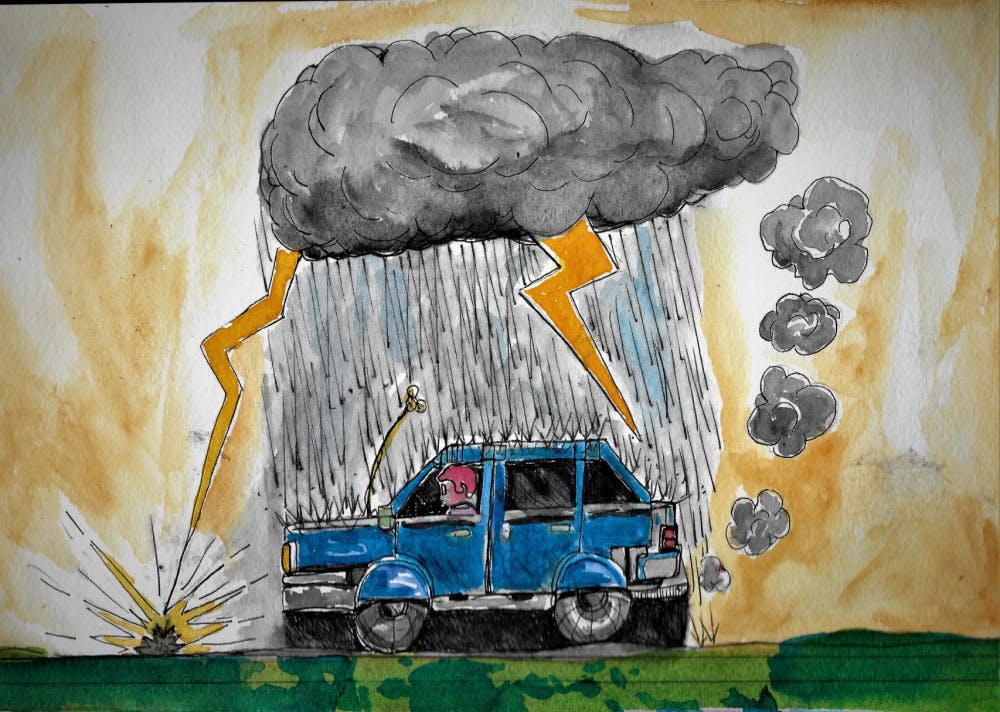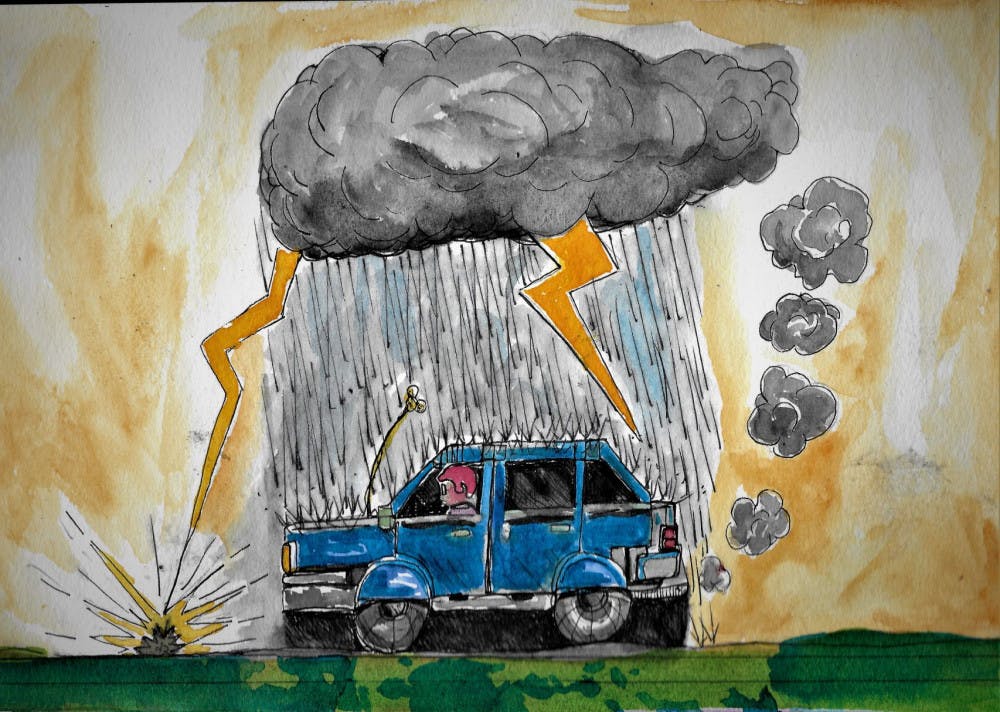Hurricanes Harvey and Irma along with dozens of wildfires in the northwest have ravaged the United States in the past couple of weeks, leaving millions devastated. The recent super storms and their effects seem to have taken the nation by surprise, but like Hurricane Sandy in 2012, these storms have been widely reported by journalists and predicted by scientists.
In “Climate change, natural disasters and community resiliency: Research roundup,†an article published out of Harvard’s Shorenstein Center on Media, Politics, and Public Policy in May of 2013, it is addressed that because of climate change and human error, the magnitude of storms and their levels of damage would rise.Â
Four years later, the U.S. has experienced two hurricanes and multiple wildfires within the span of a month.Â
Dorian Burnette, an Earth Science professor at the University of Memphis, said humans do affect these disasters.
“If a hurricane is beginning to form and most of the factors needed for one are present, the human fingerprint left in the form of rising sea surface temperatures can put the storm into motion,†Burnette said.
Humans could also be a central cause of climate change, according to Aaron Fowles, co-chair of the Green Party of Tennessee. Fowles described his party as “dedicated to democracy, social justice, ecology and peace.â€Â Â
“Humanity has contributed significantly to climate change by releasing significant amounts of carbon dioxide into the atmosphere—primarily by burning fossil fuels,†Fowles said. “The resultant warming has severe consequences, including but not limited to the increase in quantity of severity of hurricanes and other storms.â€
Fowles said he believes the U.S. government may spend at least $15 billion in hurricane aid. CNN reported that the House approved $7.9 billion in disaster relief funds for Hurricane Harvey with an expected $6.7 billion to follow.
“Health care spending could be affected by changes in climate including air quality, vector-borne diseases, and temperature-related deaths,†Fowles said.
Climate change is also identified as the second leading threat to national security by people around the globe, according to Pew Research Center. ISIS was viewed as the number one threat among the 38 countries surveyed. The study showed that 62 percent of surveyors believe ISIS is the number one threat. Climate change was pegged as a close second at 61 percent.
Locally, the city of Memphis experienced the remnants of Hurricanes Harvey and Irma as tropical storms. These storms caused a drop in temperature without signs of increase for the following week. Hurricane Jose has been on the nation’s radar, but is unlikely to cause the same damage as Irma and Harvey, according to USA Today and AccuWeather meteorologist Evan Duffey.
Savannah Jordan, a junior nursing major at the U of M, said she feels like the past month’s change in climate has been “extreme.â€
“I wasn’t expecting the storms to cause as much damage as they did,†Jordan said. “I am just afraid this isn’t the end of this spike in climate change.â€







